Call
GOGIS Board Applauds Gombe Capital Phase II Project, Urges BAP/4 Titleholders to Support Reforms
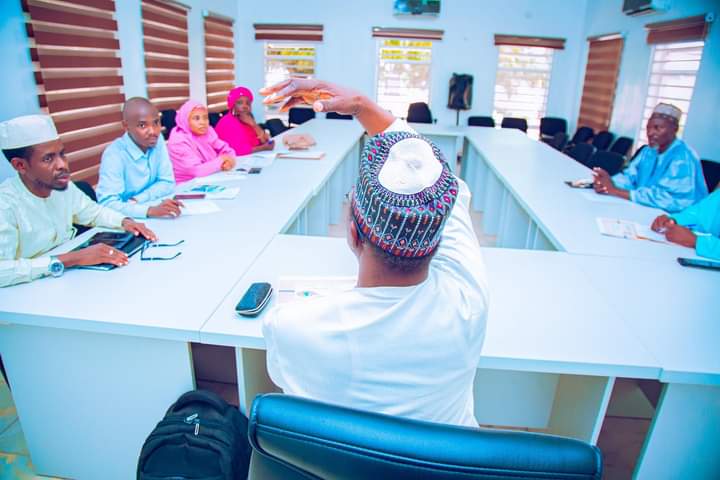
By Our Correspondent
The Gombe Geographic Information Systems (GOGIS) Board has commended the ongoing efforts to revitalize the Gombe Capital Special Development Zone, particularly the Phase II project that focuses on restoring the Shehu Abubakar District (formerly known as BAP/4 Layout). The commendation came during a meeting of the GOGIS Advisory Board, chaired by Professor James B. Kaltho, and held in the GOGIS conference hall. The board praised the reforms being implemented under the leadership of Governor Muhammadu Inuwa Yahaya, particularly in alignment with the revised Gombe Master Plan.
Professor Kaltho, in his presentation, emphasized that the reforms introduced by Governor Yahaya are centered on urban planning and development, with the Gombe Master Plan serving as a key instrument for achieving these objectives. He explained that the metropolis has been divided into nine development zones, including the Special Capital Development Zone and eight other strategic areas. The plan is designed to distribute essential infrastructure across these zones, thereby reducing the need for residents and businesses to commute to the city center for basic services.
Dr. Kabiru Usman Hassan, the Director General of GOGIS, followed with a comprehensive presentation on the progress of Phase II of the Gombe Capital Special Development Zone Project. This phase primarily focuses on the revitalization of the Shehu Abubakar District, named in honor of the late Emir of Gombe, and the Wuro Liman area. Dr. Hassan noted that the BAP/4 Layout had suffered from years of neglect, with significant environmental degradation caused by gully erosion, impacting several plots in the district.
He assured the board that GOGIS has taken strategic steps to address these issues, including the documentation of all revoked titles in the area. He stressed that titleholders in the Shehu Abubakar District would be given the right of first refusal during the reallocation and recertification process, ensuring transparency and fairness.
The GOGIS Board expressed its satisfaction with the work done by Dr. Hassan and his technical team, lauding their commitment to restoring the area in accordance with the state’s land reform agenda. The board also emphasized the importance of this project, both in the short- and long-term, for the overall development of Gombe State. They encouraged titleholders to embrace the changes being implemented, recognizing that the project will benefit the community by enhancing infrastructure and promoting sustainable development.
The Phase II project is part of Governor Yahaya’s broader land reform efforts, which seek to modernize urban planning, improve infrastructure, and address land-related issues in Gombe State. The GOGIS initiative plays a crucial role in ensuring that these reforms are effectively implemented, contributing to the overall success of the Gombe Master Plan.

Call
Sarkin Hausawa of Gombe Calls for Unity, Peace, and Promotion of Hausa Culture
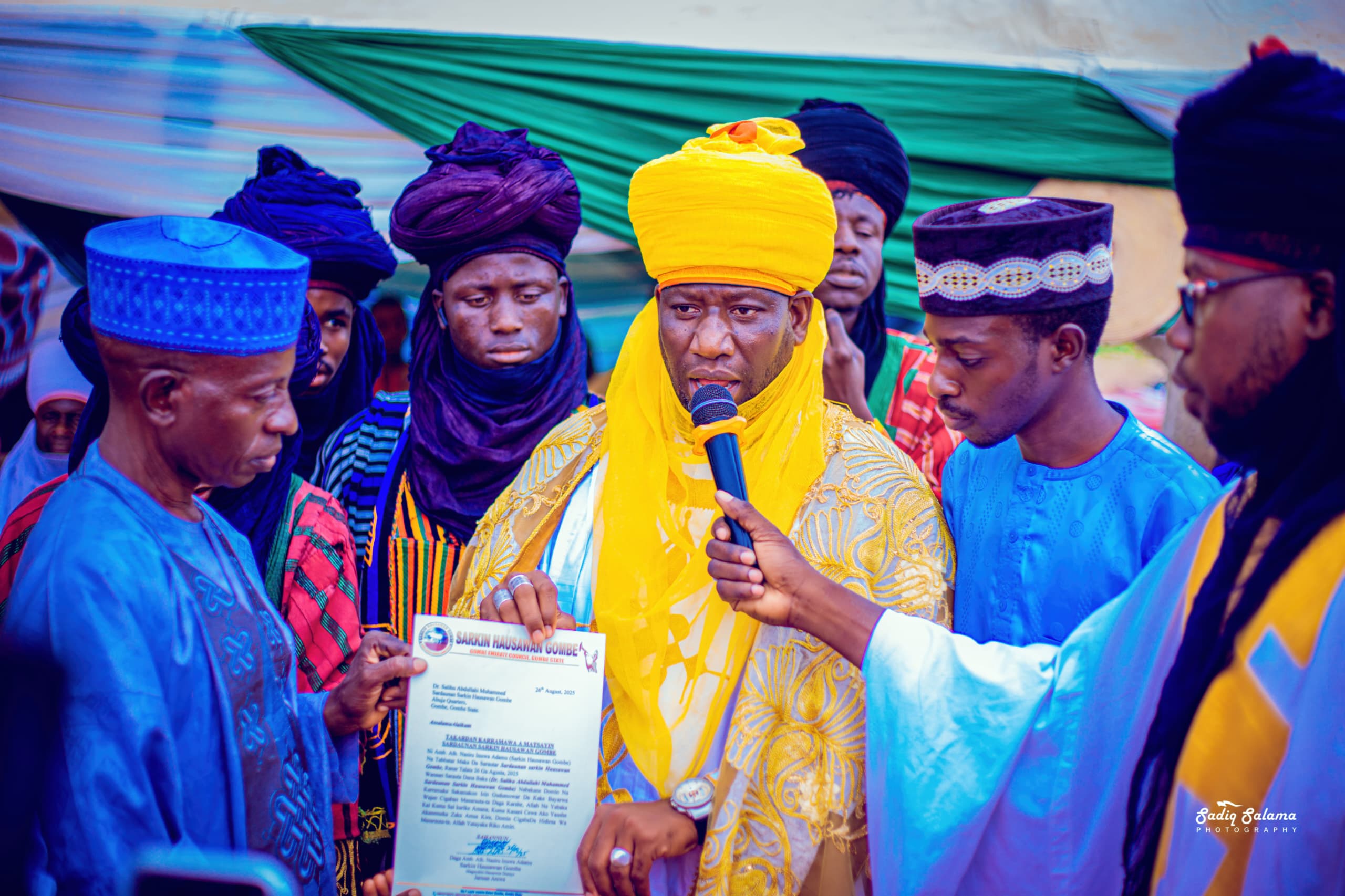
By Editor Daily Fact
The Sarkin Hausawa of Gombe, Alhaji Nasiru Inuwa Adamu, has called on residents of Gombe State to embrace unity, peace, and the promotion of cultural values that strengthen social harmony.
He made the call during the commemoration of World Hausa Day, celebrated every year on the 26th of August as set aside by the United Nations to honor the Hausa language, history, and cultural heritage.
Speaking at the event in Gombe, Alhaji Adamu expressed appreciation to the people of Gombe and the Emir of Gombe, Alhaji Dr. Abubakar Shehu Abubakar III, for providing an enabling environment where Hausa people and other communities can live peacefully and preserve their traditions.
The celebration featured a keynote lecture delivered by Dr. Muhammad Abdullahi (Jarman Kumo), who spoke extensively on the historical antecedents of the Hausa people, their cuisine, educational values, and way of life. He emphasized the need to preserve the Hausa identity in the face of modern challenges.
The event also included cultural displays, paper presentations, and a grand Hawan Durbar in the evening, which attracted a large crowd of residents, traditional leaders, academics, and cultural enthusiasts who came to witness the rich heritage of the Hausa people.
Prominent personalities from across the state graced the occasion, lending their voices to the importance of cultural preservation as a tool for unity, peacebuilding, and social development.
The Sarkin Hausawa reiterated that World Hausa Day should serve as a reminder for younger generations to embrace their heritage, language, and values while contributing positively to the peace and progress of Gombe State and Nigeria at large.
Call
ADMUN Hosts 12th National Camp in Gombe, Calls for Inclusive Support for Deaf Muslim Women
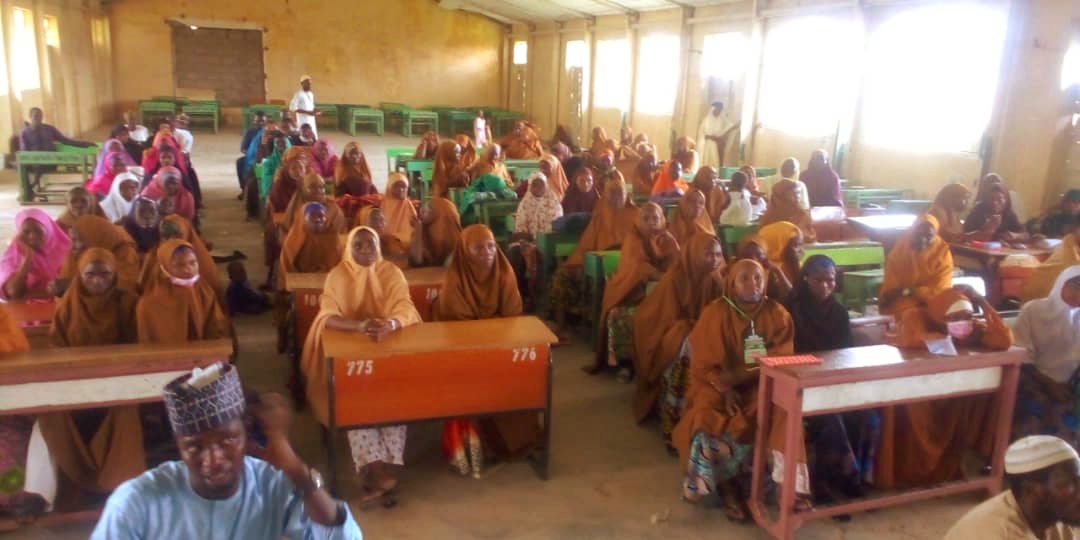
By Abubakar Rabilu, Gombe
The Association of Deaf Muslim Women in Nigeria (ADMUN) on its 12th National Islamic Training Camp in Gombe State has make a strong appeal for inclusive policies and greater support for women with hearing impairments across the country.
The three-day camp, themed “Empowering Deaf Muslim Women Through Faith, Knowledge, and Unity”, was organized in collaboration with the Coalition of Muslim Women Organizations in Gombe State. It brought together participants from across several states, creating a platform for spiritual growth, dialogue, and empowerment.
Delivering the keynote address, Dr. Aisha Abubakar Kumo, Chairperson of the Muslim Sisters Organization (MSO), Gombe Chapter, and a lecturer at the Department of Religious Studies, Gombe State University, stressed the importance of developing sign language learning tools to enhance communication and access to education for deaf individuals.
She further called for legislation that criminalizes discrimination against persons with disabilities, lamenting that many deaf individuals in Nigeria still face barriers to both Islamic and Western education.
Dr. Aisha also criticized the absence of several invited dignitaries, describing it as unfortunate especially if their absence stemmed from bias against persons with disabilities.
Also speaking at the event, Dr. Dawud Muhammad commended ADMUN’s commitment to empowering deaf Muslim women.
He advocated for the integration of sign language and visual aids in mosques, particularly during Friday sermons, to ensure inclusive religious participation.
In her remarks, ADMUN National President, Malama Hajarat Nasir Makarfi, said the aim of the camp was to provide religious education and personal development opportunities for deaf Muslim women.
She highlighted ongoing challenges, including limited access to formal education, exclusion from community life, and high unemployment rates.
Malama Hajarat appealed for the establishment of scholarship schemes, vocational training centers, and targeted interventions to support the welfare and livelihoods of deaf women.
She called on government agencies and philanthropic organizations to provide consistent funding and logistical support to sustain ADMUN’s nationwide initiatives.
Hajiya Aishatu Salisu Abdullahi, a senior member of ADMUN, thanked scholars, community leaders, and volunteers for their continued support. Reflecting on the group’s journey since its founding in 1992, she noted that ADMUN has spent over three decades advocating for the rights and inclusion of deaf Muslim women across Nigeria.
Delegates from Gombe (the host state), Kaduna, Plateau, Borno, Bauchi, Abuja, Nasarawa, and Kwara states were among those in attendance.
Call
2027: Hamma Saleh is the Man Gombe Needs – Comrade Isa Sulaiman
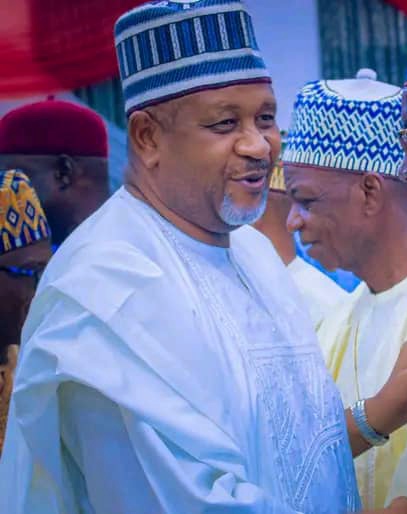
By Our Correspondent
Ambassador Comrade Isa Sulaiman (Barkama), the North-East Zonal Ambassador for Sickle Cell Patients, has thrown his weight behind renowned philanthropist and international businessman, Alhaji Abdulkadir Hamma Saleh, as the best choice to lead Gombe State come 2027.
In a strongly worded statement, Comrade Isa described Hamma Saleh as a man who has dedicated his time, resources, and life to the service of the people of Gombe. According to him, Hamma Saleh is not only a respected philanthropist but also an accomplished businessman who has made significant contributions to the socio-economic development of the state.
“Alhaji Abdulkadir Hamma Saleh is a man who cares deeply for others, always present for the needy, and a leader whose exemplary character is worth emulating,” Isa said. “He has spent millions of naira on the welfare of his people across Gombe State, invested in the aviation sector for many years as CEO of Hamsal Airlines, and contributed immensely to infrastructure development as a constructor.”
Comrade Isa also noted that Hamma Saleh has been a consistent supporter of the People’s Democratic Party (PDP) since its formation, maintaining cordial relationships with youths, women, elders, and traditional rulers alike.
Political analysts, according to Isa, believe that if the PDP fields Hamma Saleh as its gubernatorial candidate in 2027, the party will enjoy overwhelming acceptance from all segments of Gombe society.
“This is not just about political parties,” Isa stressed. “It is about competence, vision, and the ability to deliver. With Hamma Saleh at the helm, Gombe will progress, attract foreign investors, and achieve human capital development. The state could become one of the best in Nigeria.”
He urged the PDP to “choose a leader who knows the road” during its primaries, describing 2027 as a great opportunity for the good people of Gombe to unite behind a capable leader.
-

 Leadership1 year ago
Leadership1 year agoBreaking: African Union Appoints Pantami as Co-Chair of the 4th Industrial Revolution Policy Council
-

 Appointment11 months ago
Appointment11 months agoGombe State Indigene, Appointed New Vice Chancellor (ATBU)
-

 Politics2 years ago
Politics2 years agoFormer Gombe State APC Promoters Forum Chairman Attacked Following Political Commentary
-
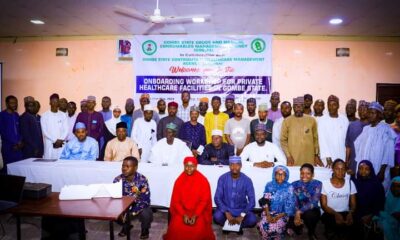
 Health1 year ago
Health1 year agoGombe State Organizes Onboarding Workshop for Private Healthcare Facilities
-
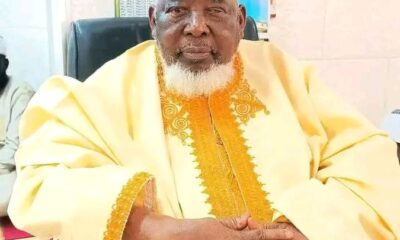
 Death6 months ago
Death6 months agoProminent Nigerian Islamic Scholar, Sheikh Sa’idu Hassan Jingir, Passes Away
-
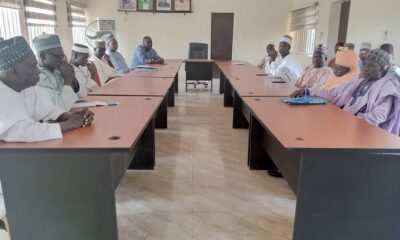
 Water1 year ago
Water1 year agoGombe Government Mobilizes Stakeholders to Combat Illegal Water Connections
-
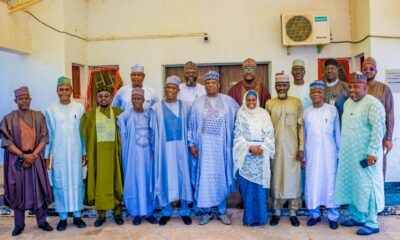
 Politics1 year ago
Politics1 year agoGombe State Inaugurates Human Capital Development Council
-

 Politics1 year ago
Politics1 year agoGombe State Launches Presidential Palliative Program (PPP) to Aid Small Businesses